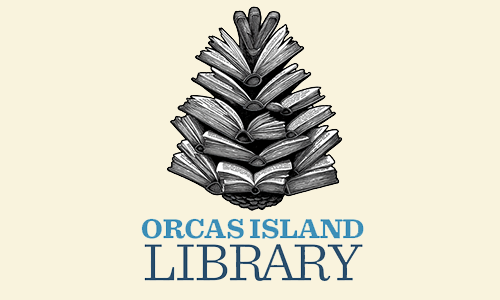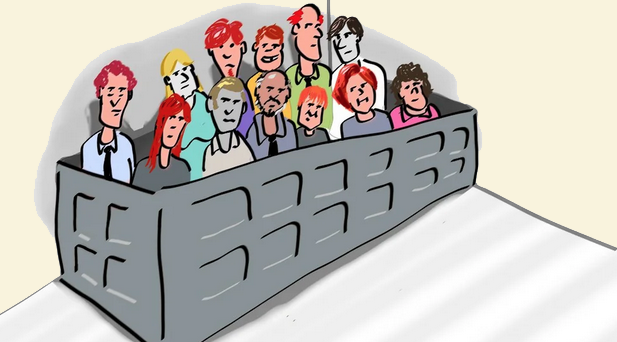–by Matthew Gilbert, Orcas Issues reporter–
The pace of development of the new Orcas Island Health Care District (OIHCD) and the speed of the OIHCD Commission’s accomplishments have been impressive: lots of complexity, lots of decisions, lots of time invested. Now with a new superintendent and short-term funding secured, the business of what’s next is going to another level.
At the board’s recent meeting on July 10, the focus remained on financial and legal issues but looming deadlines have amped up the pressure. One of those issues is the prognosis for the current Orcas Medical Foundation (OMF) building, currently housing the UW Medicine (UWM) clinic. Should OIHCD purchase or lease it? OMF is expecting a decision by August 1, but the process of due diligence continues and the commission will be notifying OMF of a likely delay. The cost of capital improvements (in particular the roof and HVAC system), a financing structure, and ownership transfer issues are at the top of the unresolved list.
Next up: next year’s bond and millage rate. To get more clarity on making sure that monies from the bond qualify for tax exempt status, finance committee members Richard Fralick and Patty Miller scheduled a conference call with bond attorney Cynthia Weed. “Once you qualify as a public health district,” Weed confirmed on speaker phone, “you are a political subdivision of Washington State and you automatically gain authorization for tax exempt status.” There are some conditions, however. For example, the OIHCD could not lease space in the OMF building to a private, profit-making party such as a pharmacy. When then asked by Miller if the bond money could cover general operating costs (which are estimated to be approximately one-third of the $600k – $1M start-up budget before tax monies kick in), Weed explained that while such funds are more typically used to cover capital costs, “there is something called a ‘short-term borrowing statute’ but the bond would have to be restructured to meet both state and federal regulations.” And how soon could all his happen? “The hard part is the state law structure,” she said, “but once that’s in place, it would only take a couple of weeks to complete the tax exempt paperwork.”
The discussion then pivoted to the Technology Committee and the website posting policy. Some of those decisions are easy, for example, upcoming agendas, meeting minutes, and final resolutions are all made available on the site (https://orcashealth.org/). “But at what point do ‘working documents’ get posted?” asked Miller. In short, when is a document or process fit for public consumption? After some constructive back and forth, the commissioners decided that issues and decisions scheduled for discussion at an upcoming meeting will be posted, and documents and fact sheets that are still highly mutable and under longer-term consideration will not be.
Art Lange of the Contract Team reported that UWM had delivered a more detailed annual budget, giving OIHCD a higher comfort level for developing an interim funding agreement. Again, there are still plenty of details to work out such as service agreement terms, termination language, and transition options but the commission is now poised to present a proposal. The process to get there and the results of this negotiation will become the prototype for starting substantive discussions with the other clinic on the island, Orcas Family Health Center (OFHC)—the commissioners planned to tour that facility after the meeting.
Lange and Diane Boteler then presented a detailed work-up of an urgent care policy with several options, focusing mostly on after-hours care and leveling out the service and payment structure between the two clinics. (Local doctors Shinstrom and Russell aren’t paid extra for doing 50% of after-hours urgent care while those working via OMC under Island Hospital receive $15,000 each for their after-hours coverage.) There was also some discussion on the role of a triage nurse. Peggy Groundwater felt that EMS providers should be free to contact other providers directly and not have to take that extra step. The commission then directed Lange and Boteler to consolidate the options into one proposal that represents a “shared service” for the entire island. Once the commission approves it, the proposal will be presented to the two clinics for feedback.
OIHD’s new (half-time) superintendent, Anne Presson, was in the audience, and while her presence was reassuring, the commission spent the last 10 minutes awkwardly debating the merits of her proposed insurance benefits. Resolution was finally achieved, but it took some of the wind out of an otherwise productive meeting.
(Note: Meeting minutes (https://orcashealth.org/minutes/) are posted once they’re approved, which takes place at the meeting following the one in which the Minutes are taken.
**If you are reading theOrcasonian for free, thank your fellow islanders. If you would like to support theOrcasonian CLICK HERE to set your modestly-priced, voluntary subscription. Otherwise, no worries; we’re happy to share with you.**







Again, thank you for this detailed report, and for making it easily accessible to all of us via Orcas Issues.
Certainly this is all great progress!!!
Did I read the article right that the PHD can not lease the medical center (if they buy it) to a profit making organization such as a pharmacy, how can they lease it to UW Med?
UW is not a “profit” making entity.
Thanks for the update, Matthew.
If the commission’s abilities match your writing skills (which all indications are a resounding yes to this “hope”), the difficult task of establishing an effective PHD on Orcas, with 24/7 access to limited medical care to boot, is making substantive progress.
Happy to read about it.